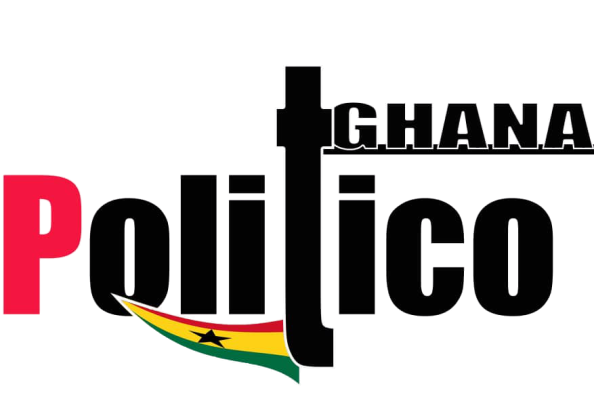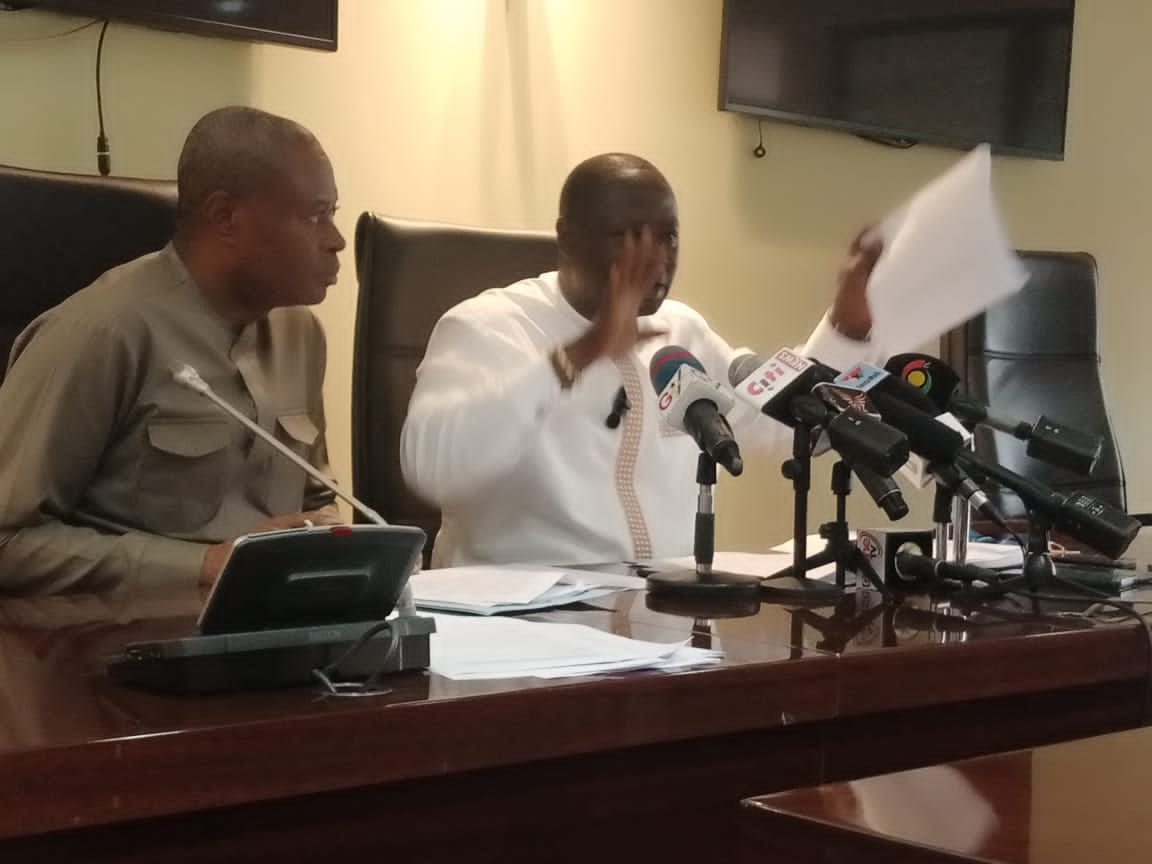The Minority in Parliament has described as a complete failure and waste of resources the government’s flagship industrial programme, One-District-One-Factory (1D1F) after analysing the five key objectives of the policy initiative that was meant to turn around the fortunes of the Ghanaian economy.
According to the Minority Group who are made up of Members of Parliament (MPs) belonging to the opposition National Democratic Congress (NDC), not a single objective of the 1D1F policy initiative has been achieved or is on track of being achieved after almost seven years of it’s implementation.
The analysis which was conducted by the group’s members serving on the Committee on Trade, Industry and Tourism focused on key information on the 1D1F in the Annual Budget Statements (2017 – 2023), the Macro-Ecomomic Impact of two Different Industrial Development Pathways in Ghana (Report) – 2020, Ghana Revenue Authority (Customs Division), Ministry of Finance (Financial statement 2023, World Bank Country (Ghana) Report 2017, and the Ministry of Trade & Industry website had one key objective.
It was meant to determine whether each of the five key objectives of the 1D1F policy initiative has been met, or it’s in the process of being met or has not met at all.
Background
The One-District-One-Factory policy initiative is a key component of the Industrial Transformation Agenda of the New Patriotic Party (NPP) Government.
The concept was first introduced by the Ministry of Trade, Industry and Presidential Special Initiatives by the NPP Administration, as part of an integrated programme for Accelerated Growth and Industrial Development. It was originally designated as the Rural Enterprises
Development Programme was later rebranded as the District Industrialization Programme (DIP).
It was designed as a comprehensive programme for rural industrialization, involving the setting up of at least one medium to large-scale factory in each of the administrative districts of Ghana.
The 1D1F Programme was launched by President Nana Addo Dankwa Akufo-Addo, on August 25, 2017, at Ekumfi in the Central Region.
Among the five key objectives of the programme are:
- To create massive employment, particularly for the youth in rural and peri-urban communities, thereby improving income levels and standard of living, as well as reducing rural-urban migration;
- To add value to the natural resources of each district and exploit the economic potential of each district based on its comparative advantage;
- To ensure an even and spatial spread of industries and thereby stimulate economic activity and growth in different parts of the country;
- To enhance the production of local substitutes for imported goods, thereby, conserving scarce foreign exchange; and
- To promote exports and increase foreign exchange earnings to support the government’s development agenda.
The Findings
The analysis on the five key objectives of the 1D1F which commenced in September 2022 and ended in December 2022, concluded that “In the light of the limited time remaining of the party in government, and considering that only a limited number of factories, whether green or brownfields are running, it can be concluded that the policy is not working and has not made any progress in the quest to moving the country from an agro-based economy to an even semi-industrialized economy”.
Addressing a press conference in Parliament on Friday, January 13, 2023, over the outcome of the analysis, the NDC MP for Ellembelle and Ranking Member of the Committee on Trade, Industry and Tourism, Hon. Emmanuel Armah-Kofi Buah, said the state of the 1D1F is very bad considering the millions of Ghana Cedis that have been invested into the policy initiative.
Accompanied by the NDC MP for Bole and deputy Ranking Member of the Committee on Trade, Industry and Tourism, Hon. Yusif Sulemana, the duo took turn to explain the findings on each of the five key objectives of the 1D1F Programme.
Employment
Speaking on the 1D1F objective of creating massive employment for the youth, Hon. Buah contended that the findings of the analysis revealed that it was very difficult to see how this objective was being achieved considering the outcome of the 2021 Population and Housing Census (PHC) which noted that only 13.8% in rural areas are employed, with the majority outside of the labour force.
“Another critical finding worthy to note is that, according to the 2023 Budget Statement, there are sixteen (16) Government flagship programmes for 2023. A budget of GH₵9.2 billion has been allocated for these projects. Surprisingly, only about GH₵203million representing 2.2% has been allocated to fund 1D1F projects, a clear indication that the Nana Addo/Bawumia-led NPP Government is not serious about its industrial transformation agenda they have been making so much noise about. More funding for these projects in the rural areas will create the needed jobs, thereby, helping to alleviate poverty. On the face of the records based on the analysis done, the Nana Addo/Bawumia-led NPP Government is not committed to its own flagship 1D1F policy initiative”, he noted.
Value Addition
With regards to the 1D1F objective of value addition to the natural resources of each district, Hon. Buah noted that it was only agro-processing and chemicals and pharmaceuticals that benefitted immensely from government stimulus package initiative, with a paltry resources going into livestock, plastics and packaging, electricals and electronics and garments & textiles.
“This clearly contradicts the objective of adding value to our natural resources based on comparative advantage and on the objective of even and spatial distribution of factories. This means that there is no significant impact of value addition to our natural resources”, he noted.
Even and spatial distribution
Touching on the third objective of even and spatial distribution of factories, the Ellembelle lawmaker indicated that about 70% of the industries under the 1D1F programme are located in the regional capitals of Greater Accra, Ashanti and Eastern regions.
For instance, he noted that the data revealed that 76 of the projects are located in the Greater Accra Region, followed by the Ashanti Region which has 54 factories while the Eastern Region has 37 projects. However, the Savannah Region has 4 projects while North East and Oti Regions have three projects apiece, thereby, defeating the objective of the policy initiative. Besides, majority of the factories under the 1D1F programme were existing factories that were only given some financial support for expansion and captured under the programme as a beneficiary of the initiative, he stressed.
Enhancing local production
Further commenting on the 1D1F programme, Hon. Buah noted that the objective of enhancing the production of local substitutes for imported goods, thereby, conserving scarce foreign exchange has also not been met considering the fact that imports of local substitutes such as rice and sugar have continued to skyrocket since 2017, with the forecast showing the same trend beyond 2023.
“This is why President Mahama constructed the Komenda Sugar Factory to save us some foreign exchange and also contribute to making the Cedi stronger. Seven years in power, what has happened to President Mahama’s Komenda Sugar Factory? The current troubles with the Cedi alone show that this is an abysmal failure. There is no production of local substitutes and there is no conservation of scarce foreign exchange. Importing 4.21 million metric tons of sugar and
10 million metric ton of rice in 2022 alone indicates that nothing has changed, and this objective has not been met. Another finding which should be of concern to all is that there is a huge gap between agriculture, industry and services, three of the main sectors of the economy. The data revealed that the 1D1F is not bridging the gap between agriculture and industry. While agriculture is projected to experience growth in 2023, 2024, 2025 and 2026 and beyond, industry is projected to drop steeply”, he underscored.
Promoting Exports
He also noted that the objective of promoting exports and increase foreign exchange earnings to support the government’s development agenda is also in tatters as Ghana continues to export raw materials and intermediate goods, and import more consumer and capital goods.
Considering how the policy initiative has turned out to be, the Ellembelle lawmaker said it was important for the NPP government to account to the tax payers for a failed policy initiative.




